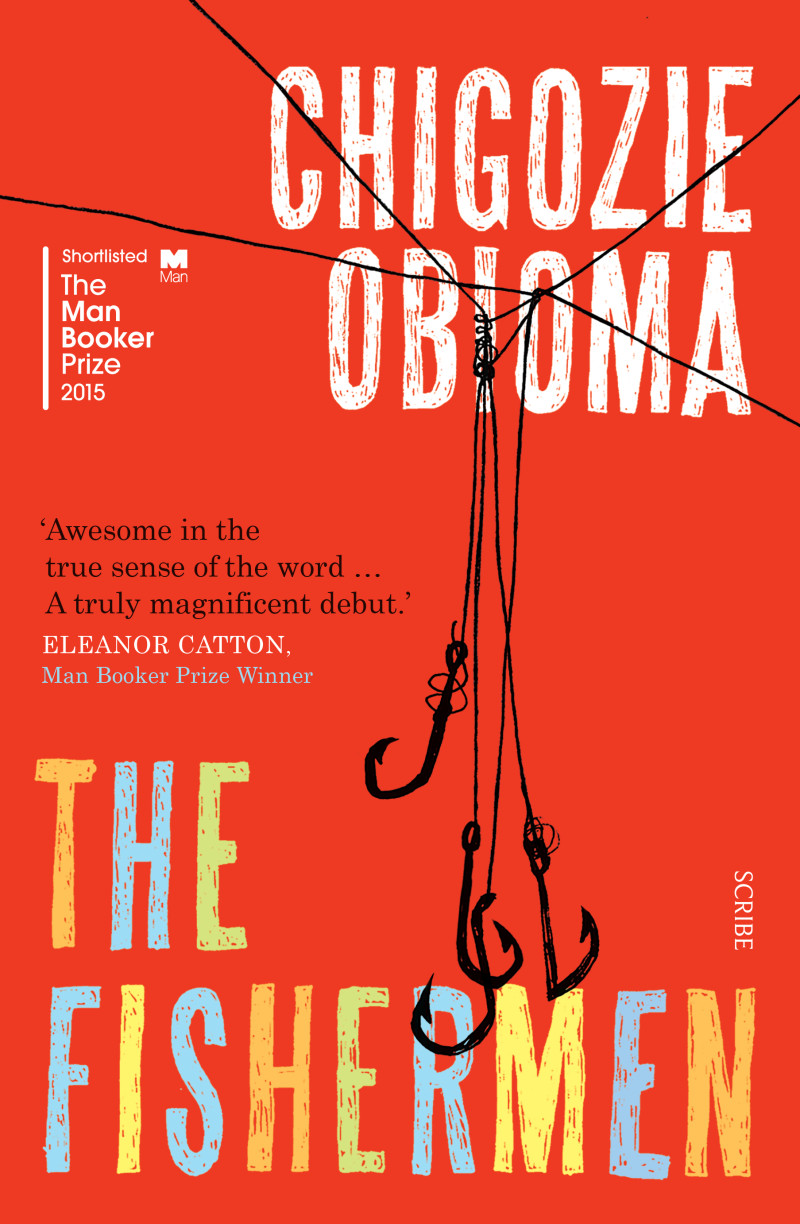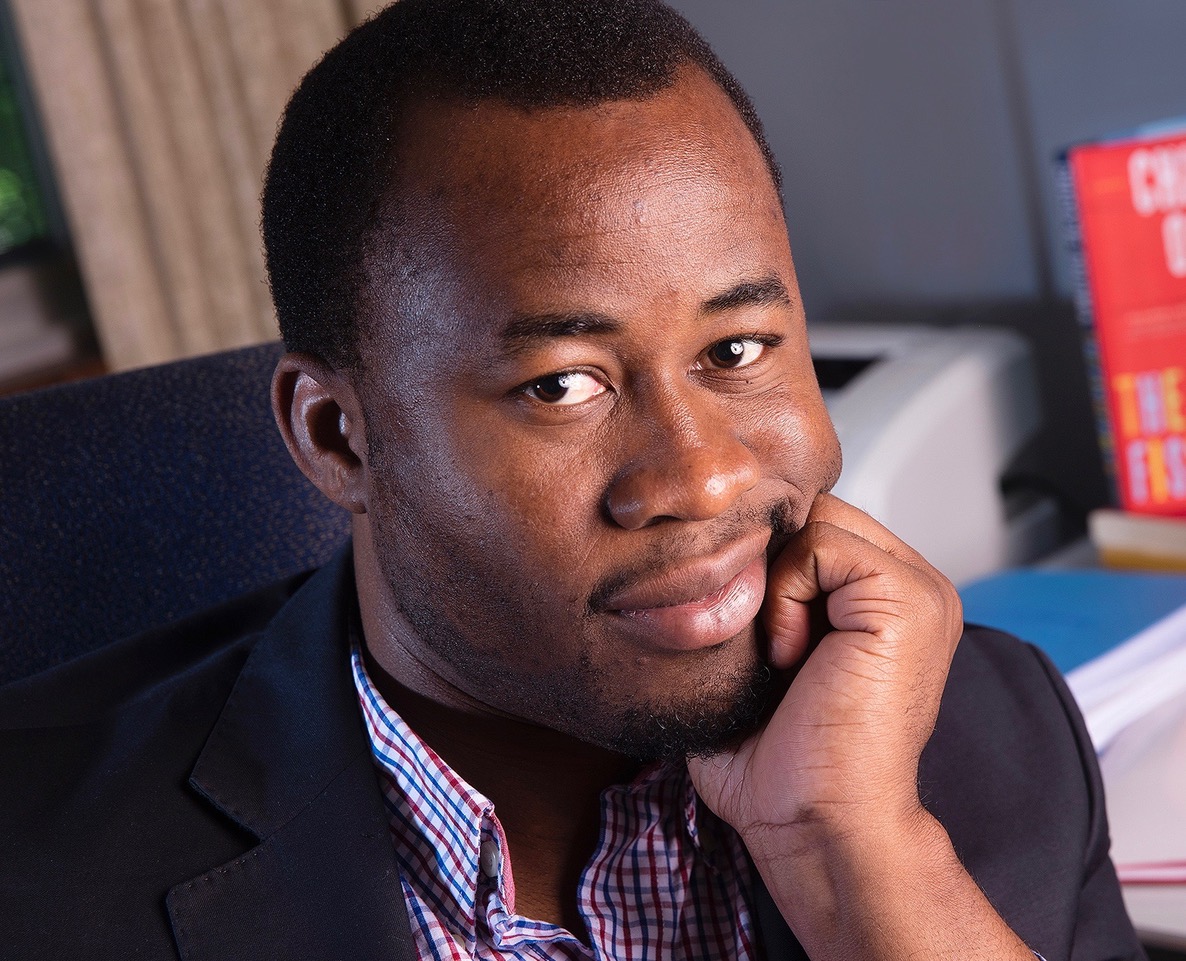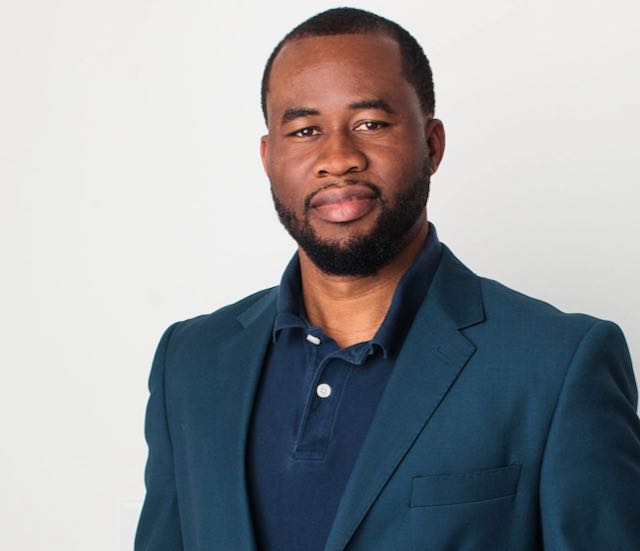
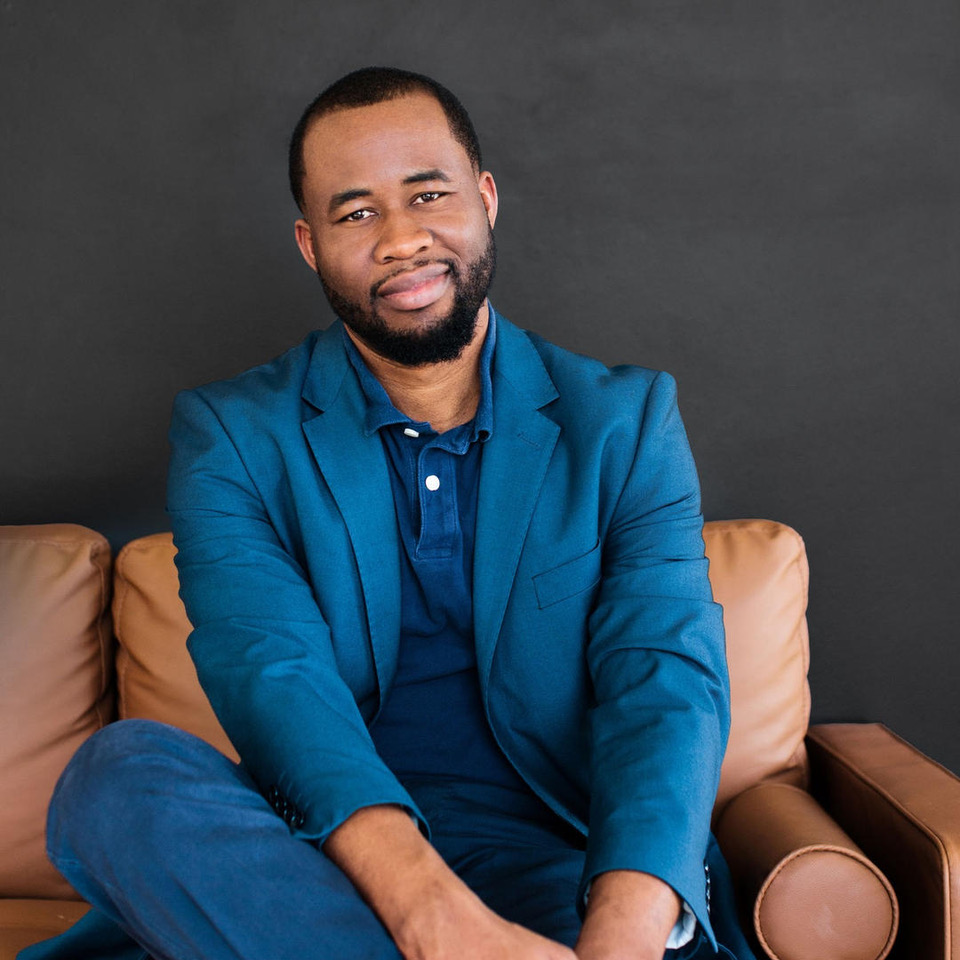
Chigozie Obioma
Award-winning Novelist
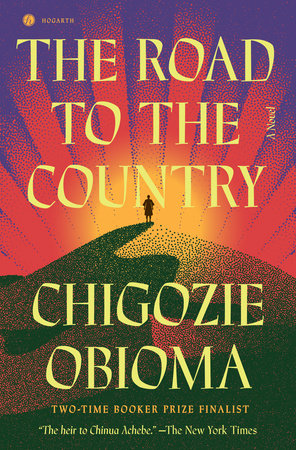
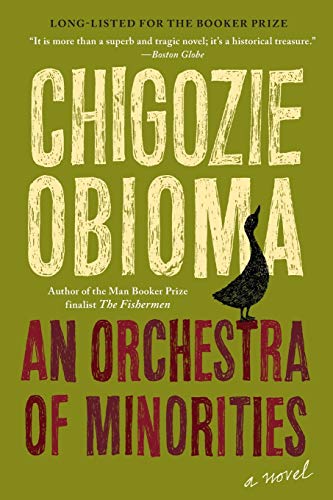
Readings &
Lecture Topics
- An Evening with Chigozie Obioma
Biography
“In his exploration of the mysterious and the murderous, of the terrors that can take hold of the human mind, of the colors of life in Africa, with its vibrant fabrics and its trees laden with fruit, and most of all in his ability to create dramatic tension in this most human of African stories, Chigozie Obioma truly is the heir to Chinua Achebe.” –New York Times
“Chigozie Obioma is that rare thing: an original. His world is a mix of the real and the folkloric, and his writing sounds like no one else’s.” –Wall Street Journal
“Frank and lyrical.” –The New Yorker
Chigozie Obioma was born in Akure, Nigeria. He is the author of the novels The Fishermen (Little, Brown and Company, 2015), winner of the 2016 Los Angeles Times Book Prize (The Art Seidenbaum Award for First Fiction), the 2016 NAACP Image Award for Outstanding Literary Work, the 2015 FT/Oppenheimer Emerging Voices Award for Fiction, and was shortlisted for the 2015 Man Booker Prize; An Orchestra of Minorities (Little, Brown and Company, 2019), which was also a finalist for the Man Booker Prize; and his forthcoming novel The Road to the Country (Hutchinson, 2024), which examines brotherhood, spirituality and the Nigerian-Biafran War. Together, his novels have been translated into more than 29 languages.
The Fishermen, which was adapted into an award-winning stage play by Gbolahan Obisesan that played in the UK and South Africa between 2018-2019, is the Cain and Abel-esque story of a childhood in Nigeria, in the small town of Akure. About the debut, Michael Schaub said, “Engrossing. Obioma’s language is rich and hypnotic, and nearly every page is filled with an unexpected and perfectly rendered description. This is a dark and beautiful book by a writer with seemingly endless promise.” Dazzling and viscerally powerful, The Fishermen is an essential novel about Africa, seen through the prism of one family’s destiny.
Obioma was named one of Foreign Policy’s 100 Leading Global Thinkers of 2015. He is the Program Director and a mentor at Oxbelly, a writers retreat that brings together fiction writers from around the world for a week of literary and creative exchange in Messina, Greece.
He is the James E. Ryan Associate Professor of English and Creative Writing at the University of Nebraska-Lincoln and divides his time between the US and Nigeria.
Short Bio
Chigozie Obioma was born in Akure, Nigeria. His novels, The Fishermen (2015) and An Orchestra of Minorities (2019) were shortlisted for The Booker Prize. He is also the author of the forthcoming The Road to the Country (2024). His novels have been translated into more than 29 languages. They have won awards including the inaugural FT/Oppenheimer Award for Fiction, the NAACP Image Award, the Internationaler Literaturpreis, and the LA Times Book Prize, and been nominated for many others. The Fishermen was adapted into an award-winning stage play by Gbolahan Obisesan that played in the UK and South Africa between 2018-2019. He was named one of Foreign Policy’s 100 Leading Global Thinkers of 2015. Obioma is the Program Director and a mentor at Oxbelly Writers Retreat. He is the James E. Ryan Associate Professor of English and Creative Writing at the University of Nebraska-Lincoln and divides his time between the US and Nigeria.
Videos
Publications
The Road to the Country
Novel, 2024
The Road to the Country is an extraordinary coming-of-age story which begins in 1950s Nigeria when a bereaved seer embarks on a visionary journey into the future of a child yet unborn. That boy, Kunle, is a university student in Lagos burdened with a guilty conscience and who sets out to rescue his missing brother from Biafra, a country at war, only to find himself conscripted to fight in one of the most devastating and under-examined conflicts of the 20th century. The fate of the seer and the young soldier will merge in a devastating and epic coming-of-age novel akin to war classics such as All Quiet on the Western Front.
An Orchestra of Minorities
Novel, 2019
Set on the outskirts of Umuahia, Nigeria and narrated by a chi, or guardian spirit, An Orchestra of Minorities tells the story of Chinonso, a young poultry farmer whose soul is ignited when he sees a woman attempting to jump from a highway bridge. Horrified by her recklessness, Chinonso joins her on the roadside and hurls two of his prized chickens into the water below to express the severity of such a fall. The woman, Ndali, is stopped her in her tracks.
Bonded by this night on the bridge, Chinonso and Ndali fall in love. But Ndali is from a wealthy family and struggles to imagine a future near a chicken coop. When her family objects to the union because he is uneducated, Chinonso sells most of his possessions to attend a college in Cyprus. But when he arrives he discovers there is no place at the school for him, and that he has been utterly duped by the young Nigerian who has made the arrangements… Penniless, homeless, and furious at a world which continues to relegate him to the sidelines, Chinonso gets further away from his dream, from Ndali and the farm he called home.
Spanning continents, traversing the earth and cosmic spaces, and told by a narrator who has lived for hundreds of years, the novel is a contemporary twist of Homer’s Odyssey. Written in the mythic style of the Igbo literary tradition, Chigozie Obioma weaves a heart-wrenching epic about destiny and determination.
The Fishermen
Novel, 2015
Told by nine-year-old Benjamin, the youngest of four brothers, The Fishermen is the Cain and Abel-esque story of a childhood in Nigeria, in the small town of Akure. When their father has to travel to a distant city for work, the brothers take advantage of his absence to skip school and go fishing. At the forbidden nearby river, they meet a madman who persuades the oldest of the boys that he is destined to be killed by one of his siblings. What happens next is an almost mythic event whose impact-both tragic and redemptive-will transcend the lives and imaginations of the book’s characters and readers. Dazzling and viscerally powerful, The Fisherman is an essential novel about Africa, seen through the prism of one family’s destiny.
Articles & Audio
Read What’s In Print
• ‘I Read Morning, Night and in Between’: How One Novelist Came to Love Books – New York Times
• “The Desire to Unlearn” by Chigozie Obioma – The Paris Review
• Review: Born A Crime and The Fishermen by Alice Walker – Alice Walker’s Garden
• Top 10 novels inspired by Greek myths – The Guardian
• Review: The Fishermen by Chigozie Obioma – New York Times
• Fiction as Revelation: An Interview with Chigozie Obioma – Bomb Magazine
• Being and Existence: An Interview with Chigozie Obioma – Fiction Writers Review
• Chigozie Obioma Wants to Write a Paradise Lost for the Igbo People – Electric Literature
• An Interview with Chigozie Obioma – Writers Digest
Listen to Audio
• The Spirit Tells The Story In Orchestra Of Minorities – NPR
• 304 Kazuo Ishiguro (with Chigozie Obioma) – The History of Literature
Selected Writings
• Read “The Strange Story of the World” by Chigozie Obioma – Granta
The Fishermen (excerpted from the novel)
We were fishermen:
My brothers and I became fishermen in January of 1996 after our father moved out of Akure, a town in the west of Nigeria, where we had lived together all our lives. His employer, the Central Bank of Nigeria, had transferred him to a branch of the bank in Yola—a town in the north that was a camel distance of more than one thousand kilometres away—in the first week of November of the previous year. I remember the night Father returned home with his transfer letter; it was on a Friday. From that Friday through that Saturday, Father and Mother held whispering consultations like shrine priests. By Sunday morning, Mother emerged a different being. She’d acquired the gait of a wet mouse, averting her eyes as she went about the house. She did not go to church that day, but stayed home and washed and ironed a stack of Father’s clothes, wearing an impenetrable gloom on her face. Neither of them said a word to my brothers and me, and we did not ask. My brothers—Ikenna, Boja, Obembe—and I had come to understand that when the two ventricles of our home—our father and our mother—held silence as the ventricles of the heart retain blood, we could flood the house if we poked them. So, at times like these, we avoided the television in the eight-columned shelf in our sitting room. We sat in our rooms, studying or feigning to study, anxious but not asking questions. While there, we stuck out our antennae to gather whatever we could of the situation.
By nightfall on Sunday, crumbs of information began to fall from Mother’s soliloquy like tots of feathers from a richly-plumed bird: “What kind of job takes a man away from bringing up his growing sons? Even if I were born with seven hands, how would I be able to care for these children alone?”
Although these feverish questions were directed to no one in particular, they were certainly intended for Father’s ears. He was seated alone on a lounge chair in the sitting room, his face veiled with a copy of his favourite newspaper, the Guardian, half reading and half listening to Mother. And although he heard everything she said, Father always turned deaf ears to words not directly addressed to him, the kind he often referred to as “cowardly words.” He would simply read on, sometimes breaking off to loudly rebuke or applaud something he’d seen in the newspaper—”If there is any justice in this world, Abacha should soon be mourned by his witch of a wife.” “Wow, Fela is a god! Good gracious!” “Reuben Abati should be sacked!”—anything just to create the impression that Mother’s lamentations were futile; whimpers to which no one was paying attention.
Before we slept that night, Ikenna, who was nearly fifteen and on whom we relied for the interpretation of most things, had suggested Father was being transferred. Boja, a year his junior, who would have felt unwise if he didn’t appear to have any idea about the situation, had said it must be that Father was travelling abroad to a “Western world” just as we often feared he someday would. Obembe who, at eleven, was two years my senior, did not have an opinion. Me neither. But we did not have to wait much longer.
The answer came the following morning when Father suddenly appeared in the room I shared with Obembe. He was dressed in a brown T-shirt. He placed his spectacles on the table, a gesture requesting our attention. “I will start living in Yola from today onwards, and I don’t want you boys to give your mother any troubles.” His face contorted when he said this, the way it did whenever he wanted to drive the hounds of fear into us. He spoke slowly, his voice deeper and louder, every word tacked nine-inches deep into the beams of our minds. So that, if we went ahead and disobeyed, he would make us conjure the exact moment he gave us the instruction in its complete detail with the simple phrase “I told you.”
“I will call her regularly, and if I hear any bad news”—he struck his forefinger aloft to fortify his words—”I mean, any funny acts at all, I’ll give you the Guerdon for them.”
He’d said the word “Guerdon”—a word with which he emphasized a warning or highlighted the retribution for a wrong act—with so much vigour that veins bulged at both sides of his face. This word, once pronounced, often completed the message. He brought out two twenty-naira notes from the breast pocket of his coat and dropped them on our study table.
“For both of you,” he said, and left the room.
Obembe and I were still sitting in our bed trying to make sense of all that when we heard Mother speaking to him outside the house in a voice so loud it seemed he was already far away.
“Eme, remember you have growing boys back here,” she’d said. “I’m telling you, oh.”
She was still speaking when Father started his Peugeot 504. At the sound of it, Obembe and I hurried from our room, but Father was already driving out of the gate. He was gone.
Whenever I think of our story, how that morning would mark the last time we’d live together, all of us, as the family we’d always been, I begin—even these two decades later—to wish he hadn’t left, that he had never received that transfer letter. Before that letter came, everything was in place: Father went to work every morning and Mother, who ran a fresh food store in the open market, tended to my five siblings and me who, like the children of most families in Akure, went to school. Everything followed its natural course. We gave little thought to past events. Time meant nothing back then. The days came with clouds hanging in the sky filled with cupfuls of dust in the dry seasons, and the sun lasting into the night. It was as if a hand drew hazy pictures in the sky during the rainy seasons, when rain fell in deluges pulsating with spasms of thunderstorms for six uninterrupted months. Because things followed this known and structured pattern, no day was worthy of remembrance. All that mattered was the present and the foreseeable future. Glimpses of it mostly came like a locomotive train treading tracks of hope, with black coal in its heart and a loud elephantine toot. Sometimes these glimpses came through dreams or flights of fanciful thoughts that whispered in your head—I will be a pilot, or the president of Nigeria, rich man, own helicopters—for the future was what we made of it. It was a blank canvas on which anything could be imagined. But Father’s move to Yola changed the equation of things: time and seasons and the past began to matter, and we started to yearn and crave for it even more than the present and the future.
He began to live in Yola from that morning. The green table telephone, which had been used mainly for receiving calls from Mr Bayo, Father’s childhood friend who lived in Canada, became the only way we reached him. Mother waited restlessly for his calls and marked the days he phoned on the calendar in her room. Whenever Father missed a day in the schedule, and Mother had exhausted her patience waiting, usually long into midnight, she would unfasten the knot at the hem of her wrappa, bring out the crumpled paper on which she’d scribbled his phone number, and dial endlessly until he answered. If we were still awake, we’d throng around her to hear Father’s voice, urging her to pressure him to take us with him to the new city. But Father persistently refused. Yola, he reiterated, was a volatile city with a history of frequent large-scale violence especially against people of our tribe—the Igbo. We continued to push him until the bloody sectarian riots of March 1996 erupted. When finally Father got on the phone, he recounted—with the sound of sporadic shooting audible in the background—how he narrowly escaped death when rioters attacked his district and how an entire family was butchered in their house across the street from his. “Little children killed like fowls!” he’d said, placing a weighty emphasis on the phrase “little children” in such a way that no sane person could have dared mention moving to him again, and that was it.
Father made it a tradition to visit every other weekend, in his Peugeot 504 saloon, dusty, exhausted from the fifteen-hour drive. We looked forward to those Saturdays when his car honked at the gate, and we rushed to open it, all of us anxious to see what snack or gift he had brought for us this time. Then, as we slowly became accustomed to seeing him every few weeks or so, things changed. His mammoth frame that commandeered decorum and calm, gradually shrunk into the size of a pea. His established routine of composure, obedience, study, and compulsory siesta—long a pattern of our daily existence—gradually lost its grip. A veil spooled over his all-seeing eyes, which we believed were capable of noticing even the slightest wrong thing we did in secret. At the beginning of the third month, his long arm that often wielded the whip, the instrument of caution, snapped like a tired tree branch. Then we broke free.
We shelved our books and set out to explore the sacred world outside the one we were used to. We ventured to the municipality football pitch where most of the boys of the street played football every afternoon. But these boys were a pack of wolves; they did not welcome us. Although we did not know any of them except for one, Kayode, who lived a few blocks from us, these boys knew our family and us down to the names of our parents, and they constantly taunted us and flogged us daily with verbal whips. Despite Ikenna’s stunning dribbling skills, and Obembe’s goalkeeping wonders, they branded us “amateurs.” They frequently joked, too, that our father, “Mr Agwu,” was a rich man who worked in the Central Bank of Nigeria, and that we were privileged kids. They adopted a curious moniker for Father: Baba Onile, after the principal character of a popular Yoruba soap who had six wives and twenty-one children. Hence, the name was intended to mock Father whose desire to have many children had become a legend in our district. It was also the Yoruba name for the Praying Mantis, a green ugly skeletal insect. We could not stand for these insults. Ikenna, seeing that we were outnumbered and would not have won a fight against the boys, begged them repeatedly in the custom of Christian children to refrain from insulting our parents who had done nothing wrong to them. Yet they continued, until one evening when Ikenna, maddened at the mention of the moniker, head-butted a boy. In one quick flash, the boy kicked Ikenna in the stomach and closed in on him. For a brief moment, their feet drew an imperfect gyre around the sand-covered pitch as they swirled together. But in the end, the boy threw Ikenna and poured a handful of dirt on his face. The rest of the kids cheered and lifted the boy up, their voices melding into a chorus of victory complete with boos and uuh uuhs. We went home that evening feeling beaten, and never returned there.
After this fight, we got tired of going outdoors. At my suggestion, we begged Mother to convince Father to release the console game set to play Mortal Kombat, which he seized and hid somewhere the previous year after Boja—who was known for his usual first position in his class—came home with 24th scribbled in red ink on his report card and the warning Likely to repeat. Ikenna did not fare any better; his was sixteenth out of forty and it came with a personal letter to Father from his teacher, Mrs Bukky. Father read out the letter in such a fit of anger that the only words I heard were “Gracious me! Gracious me!” which he repeated like a refrain. He would confiscate the games and forever cut off the moments that often sent us swirling with excitement, screaming and howling when the invisible commentator in the game ordered, “Finish him,” and the conquering sprite would inflict serious blows on the vanquished sprite by either kicking it up to the sky or by slicing it into a grotesque explosion of bones and blood. The screen would then go abuzz with “fatality” inscribed in strobe letters of flame. Once, Obembe—in the midst of relieving himself—ran out of the toilet just to be there so he could join in and cry “That is fatal!” in an American accent that mimicked the console’s voice-over. Mother would punish him later when she discovered he’d unknowingly dropped excreta on the rug.
Frustrated, we tried yet again to find a physical activity to fill up our after-school hours now that we were free from Father’s strict regulations. So, we gathered neighbourhood friends to play football at the clearing behind our compound. We brought Kayode, the only boy we’d known among the pack of wolves we played with at the municipality football pitch. He had an androgynous face and a permanent gentle smile. Igbafe, our neighbour, and his cousin, Tobi—a half-deaf boy who strained your vocal chords only to ask Jo, kini o nso?—Please, what did you say?—also joined us. Tobi had large ears that did not appear to be part of his body. He was hardly offended—perhaps because he couldn’t hear sometimes, for we often whispered it—when we called him Eleti Ehoro—One With a Hare’s Ears. We’d run up the length and breadth of this pitch, dressed in cheap football jerseys and T-shirts on which we’d printed our football nicknames. We played as if unhinged, frequently volleying the balls into neighbouring houses, and embarking on botched attempts to retrieve them. Many times, we arrived at some of the places just in time to witness the neighbours puncturing the balls, paying no heed to our pleas to give them back because the ball had either hit someone or destroyed something. Once, the ball flew over a neighbour’s fence and hit a crippled man on the head and knocked him off his chair. At another time, the ball shattered a glass window.
Every time they destroyed a ball, we contributed money and bought a new one except for Kayode, who, having come from the town’s sprawling population of the acutely poor, could not afford even a kobo. He often dressed in worn-out, torn shorts, and lived with his aged parents, the spiritual heads of the small Christ Apostolic Church, in an unfinished two-storeyed building just down the bend of the road to our school. Because he couldn’t contribute, he prayed for each ball, asking God to help us keep this one for much longer by preventing it from crossing the clearing.
One day, we bought a new fine white ball with the logo of the Atlanta 1996 Olympic games. After Kayode prayed, we set out to play, but barely an hour into the game, Boja struck a kick that landed in a fenced compound owned by a medical doctor. The ball smashed one of the windows of the lush house with a din, sending two pigeons asleep on the roof to a frantic flight. We waited at some distance so we could have sufficient space to flee should someone come out in pursuit. After a long while, Ikenna and Boja started for the house while Kayode knelt and prayed for God’s intervention. When the emissaries reached the compound, the doctor, as if already waiting for them, gave chase, sending us all running ankle-to-head to escape. We knew, once we got home that evening, panting and perspiring, that we’d had it with football.
We became fishermen when Ikenna came home from school the following week bursting with the novel idea. It was at the end of January because I remember that Boja’s fourteenth birthday, which was on January 18th, 1996, had been celebrated that weekend with the home-baked cake and soft drinks that replaced dinner. His birthdays marked the “age-mate month,” a period of one month in which he temporarily locked age with Ikenna, who was born on February 10th, one year before him. Ikenna’s classmate, Solomon, had told him about the pleasures of fishing. Ikenna described how Solomon had called the sport a thrilling experience that was also rewarding since he could sell some of the fish and earn a bit of income. Ikenna was even more intrigued because the idea had awakened the possibility of resurrecting Yoyodon, the fish. The aquarium, which once sat beside the television, had housed a preternaturally beautiful Symphysodon fish that was a colony of colours—brown, violet, purple and even pale green. Father called the fish Yoyodon after Obembe came up with a similar sounding word while trying to pronounce Symphysodon: the name of the fish’s specie. Father took the aquarium away after Ikenna and Boja, on a compassionate quest to free the fish from its “dirty water,” removed and replaced it with clean drinking water. They would return later to notice the fish could no longer rise from among the row of glistening pebbles and corals.
Once Solomon told Ikenna about fishing, our brother vowed he would capture a new Yoyodon. He went with Boja to Solomon’s house the next day and returned raving about this fish and that fish. They bought two hooked fishing lines from somewhere Solomon had showed them. Ikenna set them on the table in their room and explained how they were used. The hooked fishing lines were long wooden staffs with a threadlike rope attached to the tip of the staff. The ropes carried iron hooks on their ends, and it was on these hooks, Ikenna said, that baits—earthworms, cockroaches, food crumbs, whatever—were attached to lure the fish and trap them. From the following day onwards, for a whole week, they rushed off every day after school and trekked the long tortuous path to the Omi-Ala River at the end of our district to fish, passing through a clearing behind our compound that stank in the rainy season and served as a home for a clan of swine. They went in the company of Solomon and other boys of the street, and returned with cans filled with fish. At first, they did not allow Obembe and me to go with them although our interests were piqued when we saw the small, coloured fish they caught. Then one day, Ikenna said to Obembe and me: “Follow us, and we will make you fishermen!”—and we followed.
We began going to the river every day after school in the company of other children of the street in a procession led by Solomon, Ikenna and Boja. These three often concealed hooked fishing lines in rags or old wrappas. The rest of us—Kayode, Igbafe, Tobi, Obembe and I—carried things that ranged from rucksacks with fishing clothes in them to nylon bags containing earthworms and dead roaches we used as baits, and empty beverage cans in which we kept the fish and tadpoles we caught. Together we trod to the river, wading through bushy tracks that were populated with schools of prickly dead nettles that flogged our bare legs and left white welts on our skin. The flogging the nettles inflicted on us matched the strange botanical name for the predominant grass in the area, esan, the Yoruba word for retribution or vengeance. We’d walk this trail single file and once we’d passed these grasses, we’d rush off to the river like madmen. The older ones among us, Solomon, Ikenna and Boja, would change into their dirty fishing clothes. They would then stand close to the river, and hold their lines up above the water so the baited hooks would disappear down into it. But although they fished like men of yore who’d known the river from its cradle, they mostly only harvested a few palm-sized smelts, or some brown cods that were much more difficult to catch, and, rarely, some tilapias. The rest of us just scooped tadpoles with beverage cans. I loved the tadpoles, their slick bodies, exaggerated heads and how they appeared nearly shapeless as if they were the miniature version of whales. So I would watch with awe as they hung suspended below the water and my fingers would blacken from rubbing off the grey glop that glossed their skins. Sometimes we picked up coral shells or empty shells of long dead arthropods. We caught rounded snails the shape of primal whorls, the teeth of some beast—which we came to believe belonged to a bygone era because Boja argued vehemently that it was that of a dinosaur and took it home with him—pieces of the moulted skin of a cobra shed just by the bank of the river, and anything of interest we could find.
Only once did we catch a fish that was big enough to sell, and I often think of that day. Solomon had pulled this humongous fish that was bigger than anything we’d ever seen in Omi-Ala. Then Ikenna and Solomon went off to the nearby food market, and returned to the river after a little more than half an hour with fifteen naira. My brothers and I went home with the six naira that was our share of the sale, our joy boundless. We began to fish more in earnest from then on, staying awake long into the nights to discuss the experience.
Our fishing was carried out with great zeal, as though a faithful audience gathered daily by the bank of the river to watch and cheer us. We did not mind the smell of the bracken waters, the winged insects that gathered in blobs around the banks every evening and the nauseating sight of algae and leaves that formed the shape of a map of troubled nations at the far end of the river bank where varicose trees dipped into the waters. We went every single day with corroding tins, dead insects, melting worms, dressed mostly in rags and old clothing. For we derived great joy from this fishing, despite the difficulties and meagre returns.
When I look back today, as I find myself doing more often now that I have sons of my own, I realize that it was during one of these trips to the river that our lives and our world changed. For it was here that time began to matter, at that river where we became fishermen.

